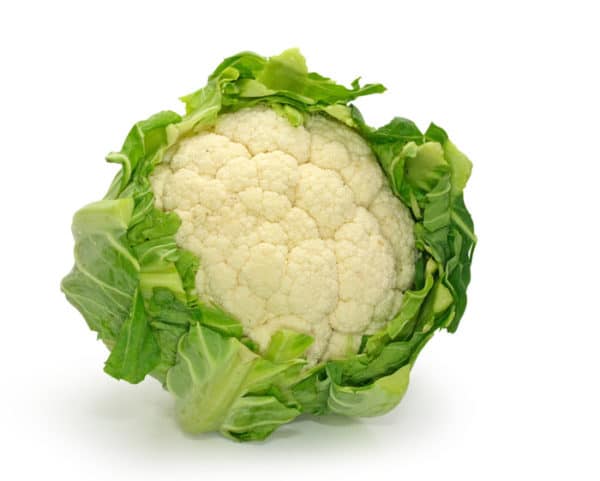
As promised in my previous blog, “When Eating More Greens is Not a Good Idea”, today I’m providing more detail on the five specific – although rare – instances where greens may cause worsening symptoms in your client.
Today I’ll begin with the topic of Oxalate sensitivity.
Oxalate is a compound found in many green vegetables, and it is also produced as a waste product by the body. Oxalates are usually not absorbed by the gut, but are simply metabolized by the healthy bacteria in your gut or eliminated as waste products.
In a small percentage of people, however, the body has difficulty getting rid of the oxalate, or may absorb too much of it, and it can result in a myriad of symptoms. In particular, problems often occur when the gut bacteria is out of balance in some way.
Who can be affected?
If you find that a client is continuing to have symptoms while drinking their newly prescribed green smoothies, it is worthwhile to put on your detective hat and look a bit further at what’s going on…do they,
- Have leaky gut symptoms (see below)?
- Possibly have a genetic predisposition relating to oxalate or a history of calcium-oxalate kidney stones?
- Possibly have a low amount of beneficial bacteria due to a recent round of antibiotics?
- Have candida overgrowth symptoms (see below)?
- Have an insufficient production of stomach acid (HCL)? Many over the age of 40 do!
- Take in insufficient fiber or have other “bad diet” habits (processed foods, poor quality fats, too much sugar or alcohol, etc. that can cause candida overgrowth)?

So if you client is reporting worsening symptoms, ask more questions!
Retake their history specifically looking at the above questions. Did they undergo recent antibiotics? Do they have a history of kidney stones (too much oxalate absorbed in the body can cause kidney stones in some people), or do they have other issues that have been attributed to excess oxalate? Based on other symptoms, could they be suffering from leaky gut?
Leaky gut is a common condition of the small intestine where the gut has been damaged and thus allows larger than usual food molecules and toxins to enter the blood stream. This can cause any of the following types of symptoms:
- Gastrointestinal complaints: Abdominal pain, bloating, constipation, diarrhea, gas, indigestion, heartburn
- Neurological disturbances: Anxiety, confusion, foggy thinking, mood swings, poor memory, nervousness, even aggressive behavior
- Breathing troubles: Shortness of breath, asthma
- Immune System Imbalances: Poor immunity, allergies, autoimmune diseases, recurrent bladder infections, recurrent vaginal infections
- Skin problems: Skin rashes, eczema, psoriasis
- Other symptoms: Chronic muscle pain, fatigue, hormone imbalances, chronic joint pain
These symptoms, by the way, are also often seen with candida overgrowth. So if your client’s history shows any of these symptoms they may also be prone to have oxalate sensitivities (if not responding well to their greens).
If you are interested in learning more about leaky gut, by the way, you might wish to check out my Clinical Mastery of the Digestive System program, which is included in my Nutritional Endocrinology Practitioner Training membership-based program for in-depth training on this incredibly important topic. After you apply, you’ll have the chance to talk with us to learn more and have your questions answered.
Too much absorption of oxalate in the body (known as enteric hyperoxaluria), has also been suspected in many other diseases, either as causes or co-factors, but research is still a bit lacking. Those diseases include: depression, arthritis, autism, interstitial cystitis, vulvodynia, and fibromyalgia.
Foods high in oxalate include:
There are many foods and drinks that are high in oxalate and you can find detailed lists on the internet. When thinking about greens in particular, dark green vegetables such as spinach are particularly high. Other heavy hitters: broccoli, okra, Brussels sprouts, carrots, celery and parsley.
What can you do to minimize client problems if you suspect oxalate sensitivity:
- Do a trial and see if limiting high-oxalate vegetables helps them.
- Eat high calcium foods at the same time as high oxalate foods. This reduces the amount of oxalate being absorbed by the body.
- Add calcium citrate to their diet. Oxalates bind to this and can then more easily be eliminated.
- Avoid high doses of vitamin C supplementation as the body may turn extra vitamin C into oxalate.
- Have your client drink a lot of fluids. At least ½ their body weight in fluid ounces plus 8 fluid ounces for each 15 minutes of sweating.
- Have your client boil high-oxalate leafy greens (and discard the water).
- Have them minimize fructose and sodium in their diet. Limit eating processed foods high in sodium.
- Focus on improved gut health! Add probiotics or fermented foods to their diet. Lactobacillus love to eat oxalate. Fermented foods can also help with candida overgrowth.
So I hope you can see why it is so important to take an in-depth medical history and ask questions. Who would have thought ANYONE could possibly have an issue with our beloved greens!
In the next blog on the series of five I will be talking about genetic polymorphism as a potential reason for greens to be an issue for your client. See you then!
Have you had a client have an issue with oxalate sensitivity? If so, I’d love to hear about it. What did you recommend as a treatment?
Share this:

Are you feeling stuck?
Do you feel as if something is missing from your practice that's keeping you from delivering breakthrough outcomes for your clients?.
Recent Posts
Our Programs
Nutritional Endocrinology Practitioner Training (NEPT)
The Mastery and Certification tier is our flagship program and provides everything you need to feel confident as a practitioner who knows how to get results that lead to healthy and happy clients.
Functional Assessment Mastery
Explore the relationships between the most important hormones and their relationship with nutrition.
Functional Nutrition Mastery
Learn how to support your clients to eat and supplement in a way that reduces and eliminates chronic symptoms.
Medical Disclaimer: The information on this website is not intended to replace a one-on-one relationship with a qualified health care professional and is not intended as medical advice. It is intended as a sharing of knowledge and information from the research and experience of Dr. Ritamarie Loscalzo, drritamarie.com, and the experts who have contributed. We encourage you to make your own health care decisions based upon your research and in partnership with a qualified health care professional.
Disclosure: Sometimes (but not always), when I share resources in my programs, newsletter, and on my website, I'm using an affiliate link, which means I do make money if you buy. My credibility is extremely important to me; therefore, I only endorse the products, services, and people I believe in. DrRitamarie.com is independently owned and the opinions expressed here are my own.
Click here to see our Privacy Policy.











Hi Dr. Ritamarie, I just love your work and wish you’d come back to speak in the northeast. As a speech and language pathologist for 38 years and a raw food coach, I’m working with families of children on the autism spectrum. Steven Prussack and I did a study last year called “Juicing for Autism.” The juices did include some leafy greens considered high in oxalates but most of the children who followed through with the study did not have a problem, although there were some who didn’t participate because of oxalate sensitivity. Dr. Gabriel Cousins pointed out that oxalates are a problem when the leafy greens are cooked but not when raw. But in your article you suggest boiling them. Norman Walker also said that raw leafy greens will not cause the oxalate problem. Any feedback would be helpful.
Thank you!
Hi, Karen, Ritamarie also said to tell you she loves the work you are doing, and always enjoyed having you on her radio shows. I’m sure when we decide to bring that part of the business up again, we’ll be in touch with you. She also said to tell you she hasn’t been back to the northeast for a while, and her schedule right now doesn’t have it in there, but when she does, she’ll be sure to be in touch with you.
As for the issue of the oxalate sensitivity, most of the research says to boil them and throw away the water. The people I’ve worked with were sensitive to raw. Everyone is different, so testing each person through experimentation is best. As they heal their digestion, it brings them to a place of balance where they can once again enjoy the health and healing benefits of raw foods in their diet.
Lynn DeBuhr Johnson
Dr. Ritamarie Programs
Institute of Nutritional Endocrinology
Hi you noted eating a diet low in added sodium? Is there a connection to sodium intolerance and high oxalates in the body? I switched over to a high raw plant diet to heal my SIBO and other issues (including histamine intolerance) and symptoms have flared terrifically and have not calmed! I traced it to oxalates (my OAT test showed high oxalates in the past) and since changing over to high sodium diet I cannot tolerate even a pinch of added Himalayan salt without instant flushing and heavy fatigue! Researched like crazy trying to find out why and because I don’t have high blood pressure to go along with it, I haven’t found answers! Would love to know your thoughts in this! Thank you!!!!
Hi, Sue, The connection between the sodium has much to do especially with kidney stones. If you have oxalate sensitivity, you may be at greater risk for kidney stones. You do want to reduce your sodium intake to 2-3 mg per day. By reducing sodium, you reduce the chance of forming stones. When we consume too much sodium, the kidneys begin to excrete excess calcium from the urine; then the calcium combines with oxalates and stones form. Processed foods have high amounts of sodium and should also be avoided.
Reactions to salt, as with all powerful substances, vary greatly from one individual to the next. Edema (excess fluid retention) can occur with just a few grains of salt if an individual has a tendency to retain fluids; in other cases, even large amounts of salt will not affect an individual. Problems arise when too much salt is consumed for one’s own tolerance level – especially salt in its refined form.
A sodium/potassium balance must be maintained to sustain health. Salt in the body should eventually be replenished, but with the accompaniment of potassium, water, and/or food. Thus the person who works hard and sweats will generally use more salt but also needs even more juices and other potassium-rich nourishment.
I hope this helps, Sue. Let us know if you have any other thoughts on this.
**incorrect statement in my last post – “since switching over to high sodium diet ” it was supposed to sayI high plant foods diet!!
Thanks Sue.